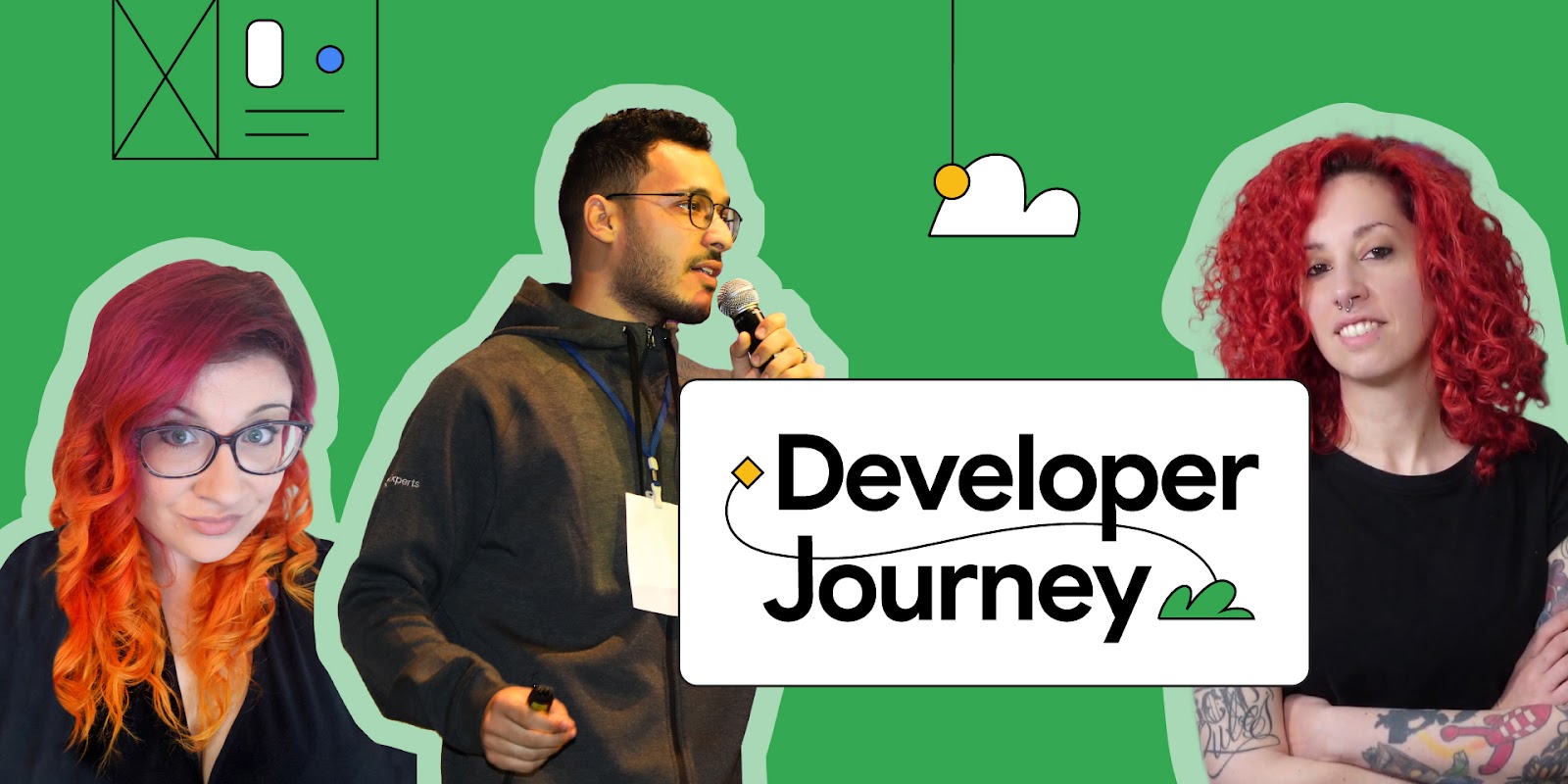
Developer Journey is a monthly series highlighting diverse and global developers sharing relatable challenges, opportunities, and wins in their journey. Every month, we will spotlight developers around the world, the Google tools they leverage, and the kind of products they are building.
This month, we spoke with several Google Developer Experts to learn more about their path.
Eslam Medhat Fathy
 |
What Google tools have you used to build?
I have used many tools like Firebase, Flutter, Android, Kotlin, Dart, Assistant, and Bard, of course.
Which tool has been your favorite to use? Why?
My favorite tool is Firebase, because of how easy it is to set up and use. It also provides a serverless architecture, easy-to-use services, real-time synchronization, and cross-platform support, among other features. These benefits can help you build robust and scalable applications quickly and easily.
Tell us about something you've built in the past using Google tools.
I have more than 10 apps in the store created in Android native with Kotlin, Flutter and Dart. A few examples are Rehlatech and AzkarApp.
What will you create with Google Bard?
I use Bard every day for generating, debugging, explaining, learning code, and more.
What advice would you give someone starting in their developer journey?
I advise everyone about to start their developer journey to:
- Start with the basics: It's important to have a solid foundation in programming fundamentals. Learn the basics of a programming language, such as syntax, data types, control structures, and functions.
- Practice coding: Practice makes perfect. The more you practice coding, the better you'll become. Start with small projects and gradually move on to more complex projects.
- Learn from others: Join online communities, attend meetups, and participate in forums. Learning from others can help you improve your skills.
- Read the documentation: Documentation is your friend. Read the documentation of the programming language or tools you're using. It can help you understand how to use them properly and solve problems.
- Be patient: Learning to code takes time and patience. Don't get discouraged if you don't understand something right away. Keep practicing and asking questions.
- Build projects: Building projects is a great way to learn new skills and apply what you've learned. Start small and gradually build more complex projects.
- Stay up-to-date: Technology is constantly evolving. Stay up-to-date on the latest trends and updates in the programming world. Attend conferences, read blogs, and follow experts on social media.
- Have fun: Coding should be fun. Don't take it too seriously and enjoy the process of learning and building new things.
Carmen Ansio
 |
What Google tools have you used to build?
I have used various Google tools to build projects including Angular, Dart, and Firebase.
Which tool has been your favorite to use? Why?
My favorite tool has been Chrome DevTools because of its versatile suite of debugging tools and its network panel, which I often use to optimize web performance. DevTools is an essential part of my daily development process as it allows me to test, experiment, and debug code directly in the browser.
What will you create with Google Bard?
With Google Bard, I plan to develop a Figma plugin for creating dynamic design prototypes. Leveraging the natural language processing and understanding capabilities of Google Bard, the plugin will allow designers to quickly convert textual descriptions into visual design elements. This can significantly streamline the design process, bridging the gap between ideation and visual representation, while enabling non-designers to contribute effectively to the design process.
What advice would you give someone starting in their developer journey?
For those beginning their developer journey, my advice would be: Always stay curious and never stop learning. Technology evolves quickly, and it's important to be adaptable. Also, never undervalue the importance of good UI/UX design. It's not only about writing code, but also about creating a great user experience.
Stéphanie Walter
 |
What Google tools have you used to build?
The main tools I use are the Chrome inspect tool and Lighthouse. I’m using Material UI a lot and the M3 design kit for Figma is a great time saver.
Which tool has been your favorite to use? Why?
Performance is important where I work, so Lighthouse is definitely in my favorite list. The function to get a quick report, which also shows main accessibility issues, is very nice. Of course it won’t show all accessibility issues, but it’s a good place to start improving a website.
Please share with us about something you’ve built in the past using Google tools.
Both Lighthouse and the Chrome inspect tool are lifesavers when building websites like my blog. There’s still improvement to be made on some pages on performance, but it’s getting there.
What will you create with Google Bard?
To be honest, it only has been recently made available for my country, so I haven’t had time to really play with it. For now, I use AI chatbots as glorified assistants. English isn’t my native language, so asking such tools to help translate some things and improve grammar in some sentences is very helpful. I might use it to help me with sharing knowledge: to improve my articles, conference slides, and training material.
What advice would you give someone starting in their developer journey?
Start with a project you are passionate about, something that would help you, or something you wish existed. It doesn’t have to be perfect. It also doesn’t have to be something that will bring money. And remember, you also don’t have to finish it. It’s nice if you can share it with peers to get feedback but you can also share unfinished projects. It’s all about learning while working on something that you like.But remember to also step away from the computer. Developing should not be your whole life - otherwise, you will burn out really fast.
 Posted by
Posted by